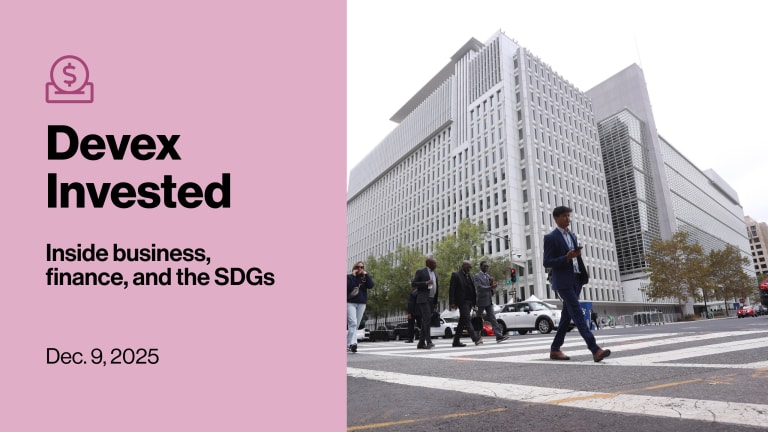
African countries face growing risk of debt defaults, AfDB warns
The COVID-19 pandemic has led to heavier debt burdens while worsening poverty and widening inequality, African Development Bank President Akinwumi Adesina says.
Public disclosures about government debt in low-income countries are extremely limited, making it more difficult for governments to restructure their loans, the World Bank said in a new report Tuesday. This lack of transparency is also pushing up borrowing costs, making it harder to service the debt.
These issues pose a threat to meeting the Sustainable Development Goals, as low-income countries will need to borrow heavily to make investments to stage an economic recovery and set up future prosperity. The World Bank estimates external financing needs in low-income developing nations will reach $429 billion between 2023 and 2025. This comes as debt is already sharply rising.
“This affects investor appetite,” said Diego Rivetti, a senior debt specialist at the bank, referring to the lack of data. “All things being equal, investors prefer to invest in countries where they know the stock and composition of debt.”
Opaque debt: One issue is that governments have taken out non-marketable loans. This can include resource-backed debt, such as when a government takes money from a creditor in exchange for a future energy-driven revenue stream.
“These loans are not in a Bloomberg terminal,” Rivetti said. An additional way to hide the true size of debt: using swaps and other central bank tools, such as repo deals, to cover up borrowing.
According to the bank, 40% of low-income countries have not published “any” sovereign debt data in the last two years. Meanwhile, the World Bank says nearly half of the countries in this category are at high risk of external debt distress, and 12% are already in distress.
Why it matters: There is currently no mechanism for real debt relief in the modern era, and getting there would involve countries opening up their books.
“You need to have transparency as a starting point,” Rivetti said. For example, when Chad tried to restructure its debt, it lost a year to simply gathering the data.








